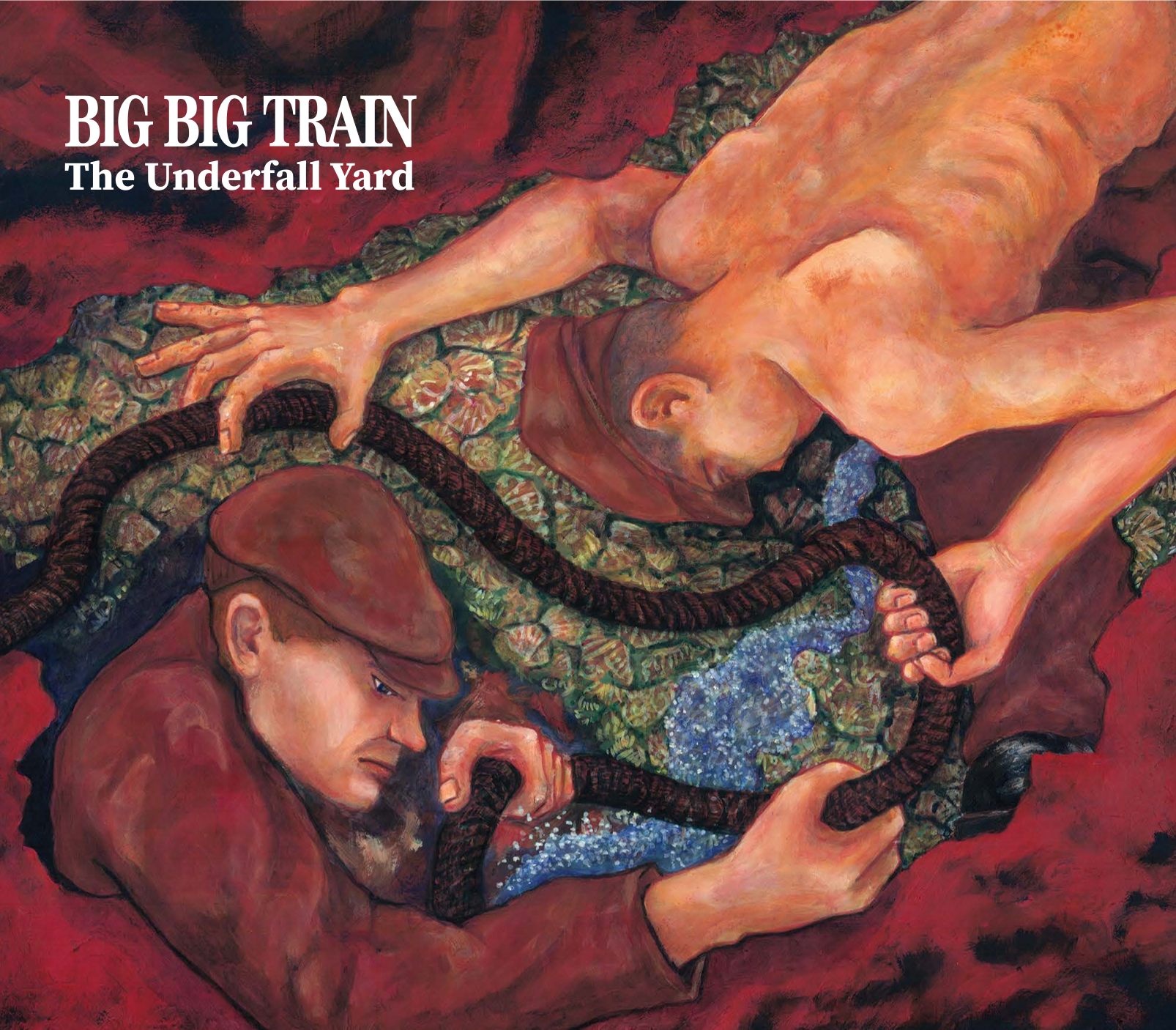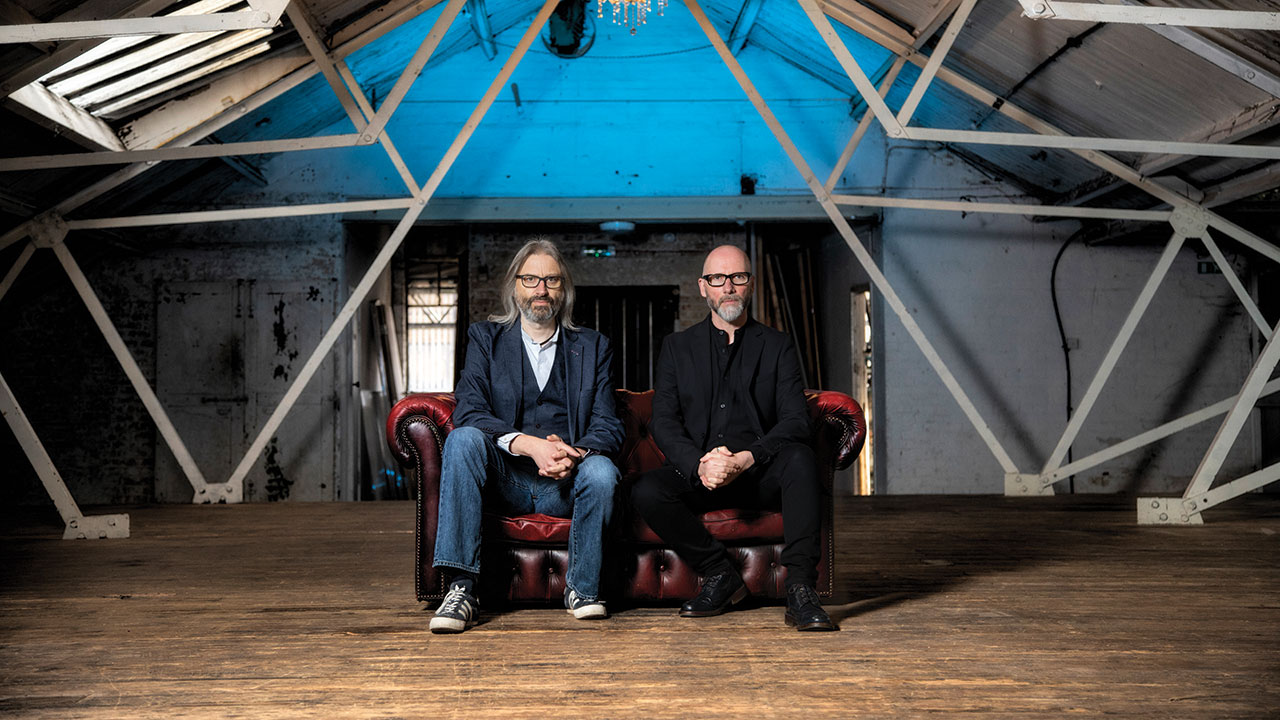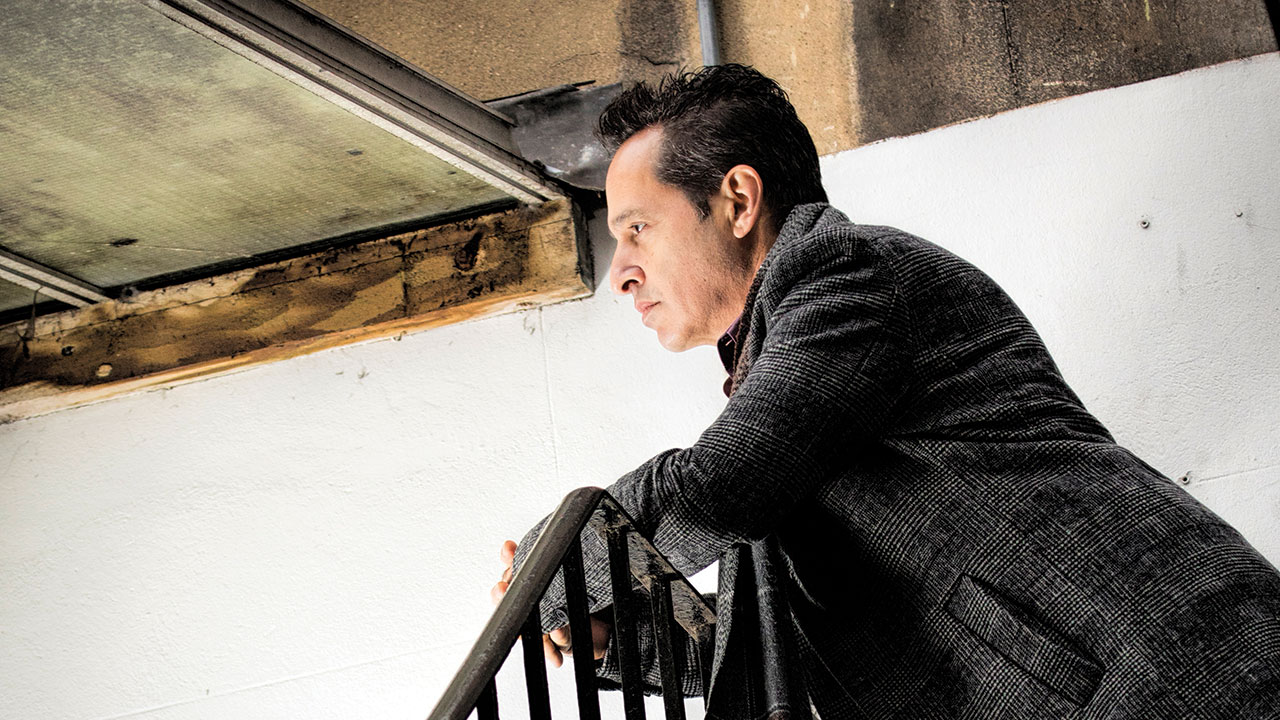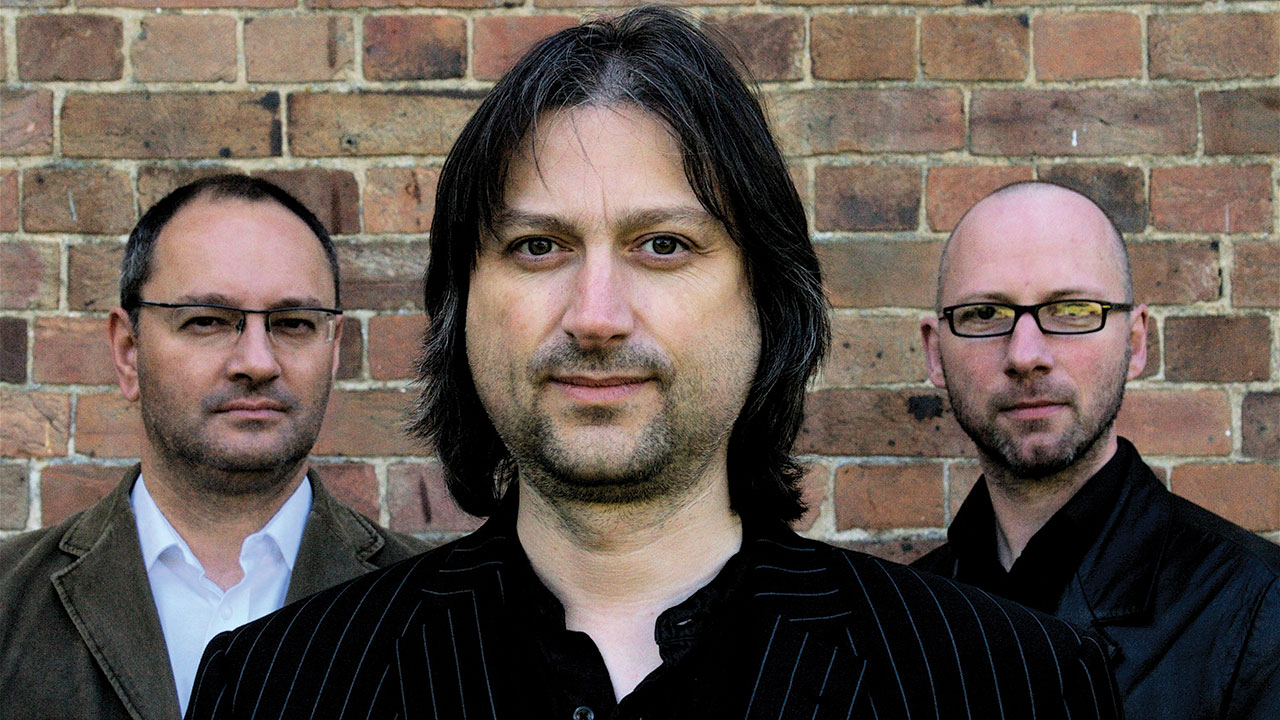Big Big Train do detail like few others. In repackaging their sixth album the group’s goals were twofold: to make a ‘coming of age’ release available on vinyl for the first time and, coincidentally, to commemorate its 10th anniversary. Alas, BBT became so consumed by the minutiae of their objective that the deadline came and went. Two years later than planned, a deluxe reboot of The Underfall Yard is now ready to be wheeled out.
“We’re a fussy band,” admits bassist, guitarist and keyboardist Greg Spawton with a degree of understatement. “We could’ve just pressed The Underfall Yard onto vinyl from the masters but we said, ‘Why not tweak and improve it and add some extra value?’ And then when tours – remember those? – and other things got in the way and it became obvious we had spectacularly missed the anniversary, we decided to spend some time on it.”
The Underfall Yard was an album of many firsts for BBT. It marked the debuts of lead singer David Longdon and of Nick D’Virgilio, the drummer who had played as a guest on its predecessor The Difference Machine, as well as presenting future member Dave Gregory of XTC fame on guitar. Incorporate the fact that the album dared to introduce a brass band for the first time, and its importance grows.
“That’s the one thing that we’ve done which I feel could genuinely be termed original,” Spawton affirms proudly. “I was in Bath and heard a brass band playing and it blew me away. I began to wonder how that could be integrated into rock music. We were very lucky to meet the right guy, Dave Desmond [trombonist], at just the right time and he helped to make it possible.”

The five-piece line-up responsible for the original version of The Underfall Yard was a very different beast to the BBT of today.
“We were dumb as fuck back then,” Spawton states bluntly. “Who releases an album on December 15? But that’s what we did. For all I knew it could have been the last album we made. We took a chance with David Longdon; he could have turned out to be a bit of a knob, but he ended up becoming one of my best mates. We had the wind in our sails, and suddenly we were pressing up thousands of copies. It’s been our biggest seller ever since.”
Recalling his entry into Big Big Train, Longdon agrees with the bleak prospects voiced by Spawton. “At the time we were in the black, but it could have gone either way,” he observes. “I figured that if this was going to be my last hurrah then we should really
go for it and make something that would be astonishing to listen to.”
Longdon addresses the possibility of BBT’s failure and through logical extension his own: “I was a seasoned performer in my mid-40s, I’d been through a Genesis audition [in ’96]. My dreams and ambitions had been kicked across the room. My career had been through plenty of thin and very little thick, but what I sought was something to sink my teeth into.”
“I saw the band’s potential even though we hadn’t considered playing live yet. And boy, it’s taken off in a big way,” recalls Nick D’Virgilio, a co-founder of Spock’s Beard, who played on Genesis’ Calling All Stations. “This is the best-run band I’ve ever been in. We set goals and shoot for them almost better than anything I’ve been a part of. We’re a well-oiled machine.”
In a groundbreaking move, Big Big Train allowed fans to download The Underfall Yard’s 23-minute title track via their website. In the days before streaming became a thing, this can now be considered a bit of a masterstroke.
“It caused the biggest-ever row between Andy [Poole, ex-member] and I, and we’d been doing BBT for almost 20 years,” says Spawton. “For me, it felt like a decision between being King Canute or rolling with the punches and giving the fans the best thing we had. It became part of the album’s snowball effect, but to this day Andy would probably disagree.”

No stone was left unturned in the modern improvement of The Underfall Yard.
“We’re in a genre that expects forensic treatment of its music,” observes Longdon, “and as a band we had 10 more years of experience, so we could deliver that.”
The belated replacement of a synth part on Winchester Driver with a real trumpet is an example of what we’re talking about. “It gets on my tits when bands reissue their music in a half-arsed way,” Spawton seethes. “That synth part had bothered me for years but we ran out of time in the studio, so what could we do?”
Choosing his words carefully, he explains why Big Big Train invited former It Bites frontman Francis Dunnery to rework the solo he’d contributed to the album’s epic title track.
“Back in 2009, Francis wasn’t really into what he’d done with It Bites so getting him to go back and play again in that fluid style of his was a bit like pulling teeth, if I’m honest,” he admits. “Now Francis has fully re-embraced his past; he’s done tours around It Bites albums and when I asked if he fancied giving
it another go, this time he came back with the kind of a solo I’d always imagined.”
Poole, the album’s original producer, left BBT three years ago, and Spawton believes that with recording engineer Rob Aubrey handling the remixes, “the album’s sound and dynamic range is significantly improved.
“We’ve been around so long that we began using two-inch tape and then ADAT, but this one was recorded on Pro Tools so it was fairly plain sailing,” he continues. “We had a far bigger budget than first time around and Rob did a proper remix, taking everything back to zero on the console.”
BBT’s current line-up re-recorded two sections from the album, Victorian Brickwork and that title track. For Spawton, revisiting them was a slightly bittersweet experience. “Since the previous album, half of the band had left,” he explains, “and there aren’t many of us left from the original band or those that played on The Underfall Yard.”

Longdon wanted to document a specific change of his own – the timbre of his voice.
“I noticed that it had started to change at about the time we did Folklore,” he says, referring to the band’s 2016 album. “Age was gnawing its way into me – and I liked that. I sound like an older, gruffer version of myself; it’s a bit like the lines on somebody’s face.”
It’s used to full effect on Brew And Burgh, a new song written by Spawton for the expanded release. It’s a slow-paced piece based around two fictional characters who are brought to life in a quite wonderful animated video by the Swedish artist Love Fagerstedt.
“The song is about how individuals can build something if they work together,” Greg reveals. “It wasn’t intended to be about the band but along the way it sort of became that.”
Spawton had been left “cut to the quick” by a clip drawn for They Fade, a tale of childhood memories recorded by keyboardist/guitarist Rikard Sjöblom’s other band, Gungfly. For the BBT commission, Fagerstedt used Watership Down-like images to convey a heartwarming message of cooperation. The combination almost caused Prog to wipe away a tear.
“I’m glad to hear that,” Spawton says with a chuckle. “When my wife and I first watched it, our bottom lips trembled.”
The song’s message seems particularly suited to the mess the world is in right now.
“Again, it wasn’t meant to be relevant to the pandemic, but it could be,” he says. “The best of us is when we [humanity] work together, just like the worst is when we’re divided.”
“Brew And Burgh will give you a lump in the throat,” agrees Longdon. “It’s about fellowship, kinship, love, friends – all the things we need so much, but which we’ve been starved of.”
While looking back, Spawton also confirms a rumour that Big Big Train plan an overhaul of their third album, Bard, from 2002.
“Yes, I’m afraid that’s true,” he announces sheepishly. “Bard was not our finest hour, but only 2,000 copies were pressed and I’ve seen it being sold for hundreds of pounds – that’s not fair. So we will remix it and maybe add some new value, but not to the same extent as The Underfall Yard. I’m not sure we could put ourselves through that again.”
Could anybody have foreseen how far the band’s star would rise during the intervening dozen years? After all, BBT are a Top 40 albums band now.
“Absolutely not,” says Longdon. “Our rise has been idiosyncratic. Each time we reach for something we end up going that bit further. This genre demands a riveting read, a ripping yarn, and that’s what we try to present. We’re Big Big Train: we can’t be shy and retiring.”
This article originally appeared in issue 119 of Prog Magazine.

